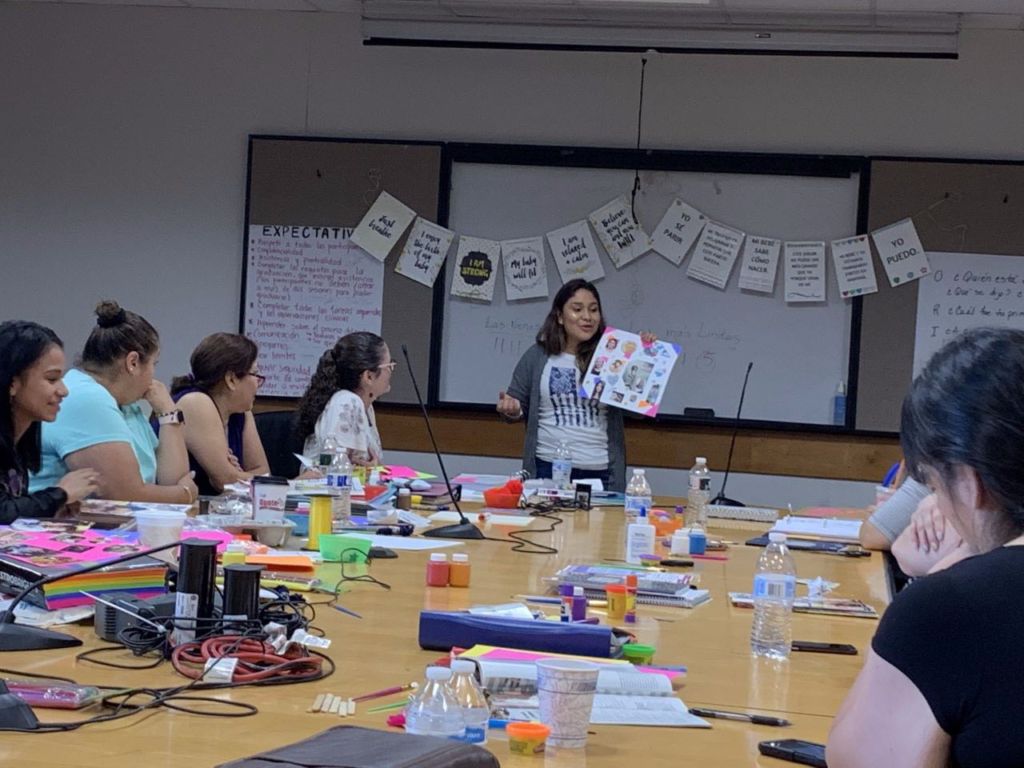Early on a Saturday morning, I visited the Children’s Home Society of New Jersey in Trenton to sit-in on the seventh training session of AMAR, a community-based doula program. Having a background in Spanish, I first noticed the name of the program—“amar” means “to love” in Spanish, and the name perfectly fits the description of a doula: a trained birth specialist who provides social and emotional support to a family throughout the course of a pregnancy and the postpartum period. The women who arrived for the training, both young and old, sat around a circular table sharing their thoughts on how to best serve expectant and new mothers. When I asked a trainee about the class, she replied, “even after two months, everyone here is like family to me.”
Although the doula-trainees spoke in Spanish, I picked up on the participants’ shared belief of the importance in providing a mother with the right balance of space and love. It was also interesting to note that every trainee emphasized the importance of having a natural birth instead of a cesarean section. A C-section procedure can be dangerous to mothers due to potential health complications, and results in longer recovery times. In fact, the maternal mortality rate is three times higher for C-section procedures than natural births.[1] Considering that the C-section rate in New Jersey is the fourth highest in the country at 35.9% of total births, it was great that the community doulas stressed the importance of prioritizing natural births.[2] In addition to attending live births and shadowing during home visits, these trainees gain experience by practicing different birthing situations and reflecting on the advantages and disadvantages of each.
Another important lesson that was included within the doula training session was safety during in-home visits. These doulas will work in low-income families and communities, so they were instructed on how to operate within unsafe neighborhoods and identify potential threats for violence. Johanna Quiñones, the Early Head Start Manager, gave an insightful presentation on protocol for initial evaluation and precautions that must be taken into account during an in-home visit with a family. For example, it is important for a doula to park her vehicle in an appropriate and accessible location where it is easy to avoid an unsafe situation or take a pregnant mother to the hospital in case of emergency. While already immersed in their communities, the trainees develop a deeper understanding of the mothers and babies they are working with after the completion of the AMAR program.
Overall, I thoroughly enjoyed my visit and it was heartwarming to see Trenton community members lifting each other up, whether it be through providing pregnancy advice to an expectant mother or fostering jobs within a low-income community. AMAR is a great opportunity for Spanish-speaking women to find a steady and impactful job, as well as improve birth outcomes for mothers. All of these women have a passion for making families feel comfortable and informed throughout the long journey of a pregnancy, and AMAR ensures that they will be skillful doulas. By working closely with families and building relationships throughout the city, these doulas are helping build a foundation for the future of Trenton.
Maheen is a summer intern at the Burke Foundation.

[1]Caughey, A. B., Cahill, A. G., Guise, J., & Rouse, D. J. (2014). Safe Prevention of the Primary Cesarean Delivery. Obstetric Care Consensus,2-3. Retrieved June 26, 2019.
[2]Stats of the State of New Jersey. (2017). Retrieved June 26, 2019, https://www.cdc.gov/nchs/pressroom/states/newjersey/newjersey.htm.
